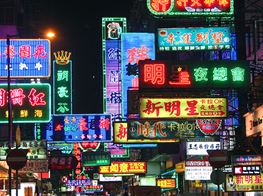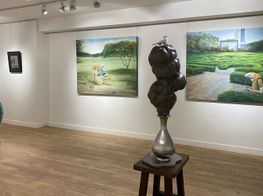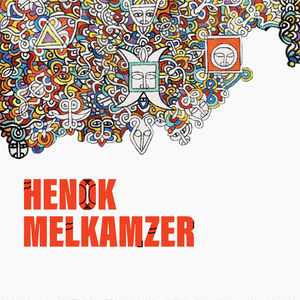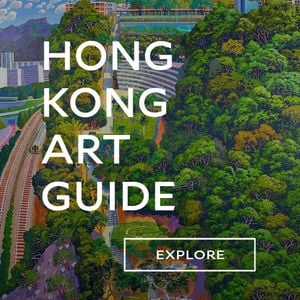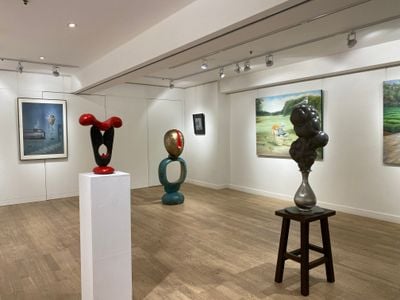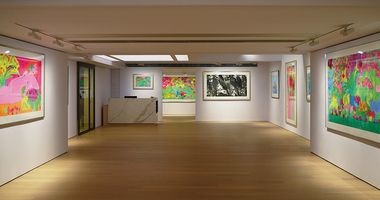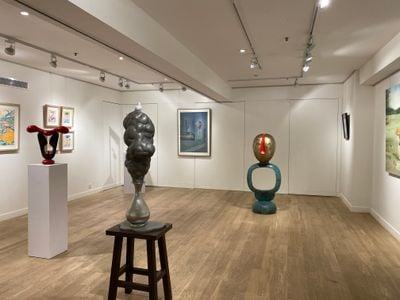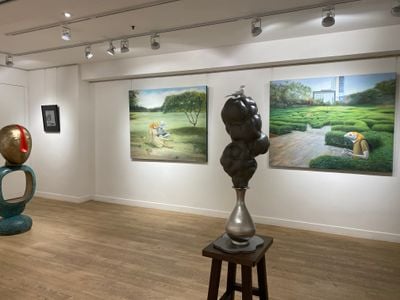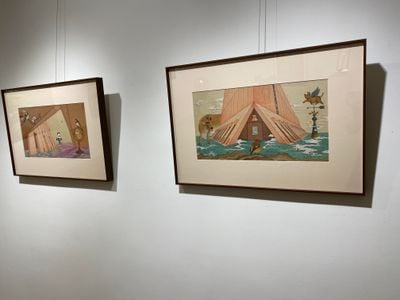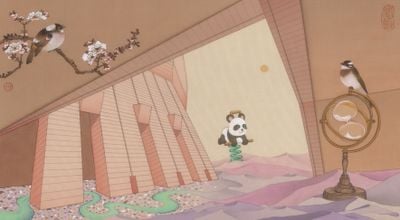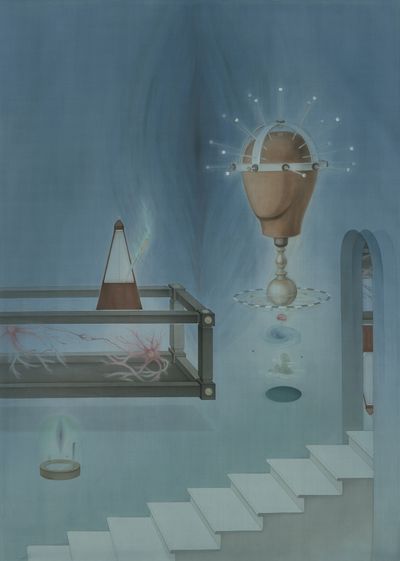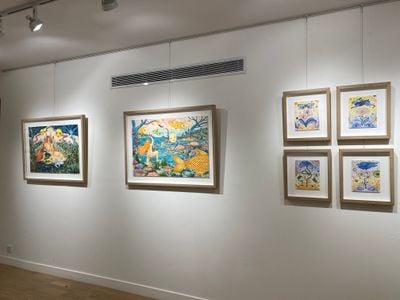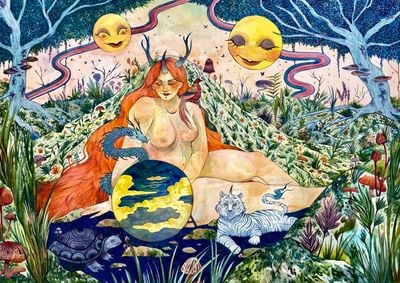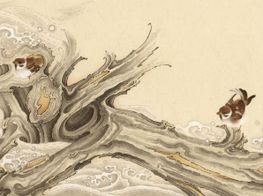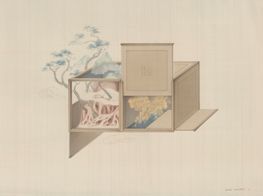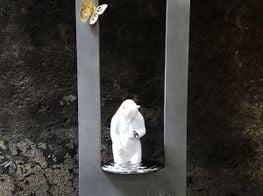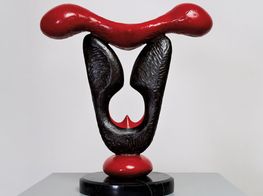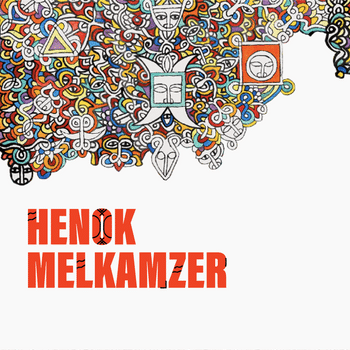Surrealism Out of Hong Kong
Running between 15 May and 7 August 2021, Chinese Surrealism is Alisan Fine Arts' take on Surrealism through the lens of six Hong Kong artists.
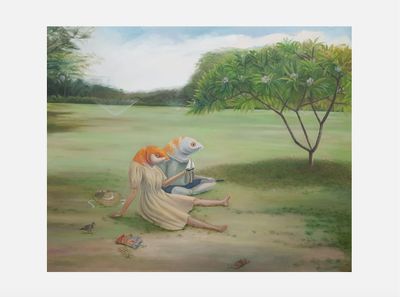
Ant Ngai Wing-lam, The May Flower: Frangipani (2021). Oil on canvas. 122 x 152 cm. Courtesy Alisan Fine Arts.
The show is hosted in collaboration with the citywide arts festival, Le French May, and is a response to the French Surrealist exhibition Mythologies: Surrealism and beyond — Masterpieces from Centre Pompidou, currently on view at the Hong Kong Museum of Art (21 May–15 September 2021).
Including emerging artists Ant Ngai Wing-lam and Charlotte Mui, ink painters Cherie Cheuk Ka-Wai and Zhang Xiaoli, and sculptors Mok Yat-San and Wu Shaoxiang, a series of hyperreal dreamscapes draw from the artists' upbringing during Hong Kong's economic boom in the eighties and nineties, which preceded the territory's transition from British colonial rule to become a special administrative region of China.
Within the context of this exhibition, Surrealism is expressed through a confluence of traditional Chinese forms, styles, and techniques—from ink painting to porcelain ware—with a focus on representations of the unconscious and the uncanny.
At the centre of Alisan Fine Arts' intimate exhibition space in Aberdeen, Mok Yat-San's sculpture Falling into A Trance: Taking Up Residence (2013) comprises a stainless-steel cloud erupting from a silver vase, positioned on a wooden stool. A bird is perched atop the cloud, which integrates Buddhist mudras and lotus patterns in its undulating surface.
Framing Mok's sculpture from behind are two oil on canvas paintings by Ant Ngai Wing-lam, The May Flower: Sun Flower and The May Flower: Frangipani (both 2021), which draw from the fluid strokes of the old masters. Figures with koi fish heads are portrayed in cinematic landscapes: one pair of characters navigates a maze, while the other relaxes on the grass near a frangipani tree.
The surroundings in Ngai's paintings are a familiar sight for those who know Hong Kong, just as Cherie Cheuk Ka-wai's depiction of the Hong Kong Cultural Centre in Tsim Sha Tsui in her Chinese ink and colour on silk paintings, The Enigma of an Afternoon 1 and 2 (both 2021), foregrounds one of the city's more unique architectures. In The Enigma of an Afternoon 2, a buffalo—a common animal in Chinese folklore—emerges from a sharp rendering of the structure.
Executed with the delicate lines of Gongbi painting, Cheuk's renditions are deeply nostalgic, and are inspired by Giorgio de Chirico's use of silent squares, shadows, and juxtaposition of symbolic objects. While the spectre of René Magritte feels palpable, a Surrealist blend of objects and memories brought forth into a contemporary and context-specific frame brings an ancient Chinese art form into the present.
The intersection of Surrealist techniques and contemporary stories effectively links the sensibilities of Hong Kong that are both ancient and modern. Zhang Xiaoli's Chinese ink painting on silk, Association Experiment (2021), is exemplary of the artist's interest in creating this dialogue.
Overall, the assembly draws on the contextual and cultural nuances of a city in flux—a departure that runs in line with Western Surrealism's origins in urban Paris in the late 1910s and early 1920s...
Inspired by Western Surrealism, this new work combines small objects with geometric and architectural elements: a doorway, staircase, and metronome in muted shades of blue and pastel.
It is a window into a poetic world of simple beauty that is likewise illuminated in four hyper-vivid watercolour on paper paintings by Charlotte Mui that reimagine the traditional motifs of the 'Four Gentlemen' depicted in Chinese brush painting that represent the seasons: plum blossom for winter, orchid for spring, bamboo for summer, and chrysanthemum for autumn.
Titled after their corresponding seasons, each painting contains a bird, fish, butterfly, and rabbit amid psychedelic flowers and sunshine, painted in an almost childlike manner with playful colour palettes in rainbow tones. A joyful madness is contained within these dream-like depictions, uncovering a wilder, perhaps more unhinged side to Chinese Surrealism proposed in this exhibition.
Overall, the assembly draws on the contextual and cultural nuances of a city in flux—a departure that runs in line with Western Surrealism's origins in urban Paris in the late 1910s and early 1920s, when artists emerging from the ravages of World War I sought new forms through which to express and indeed challenge an existence that was both tumultuous and yet full of potential.
By exploring life in a city where an economic boom transformed nearly all aspects of the local culture, Chinese Surrealism reveals the underlying cultural traditions that continue to penetrate Hong Kong's blended culture. —[O]

